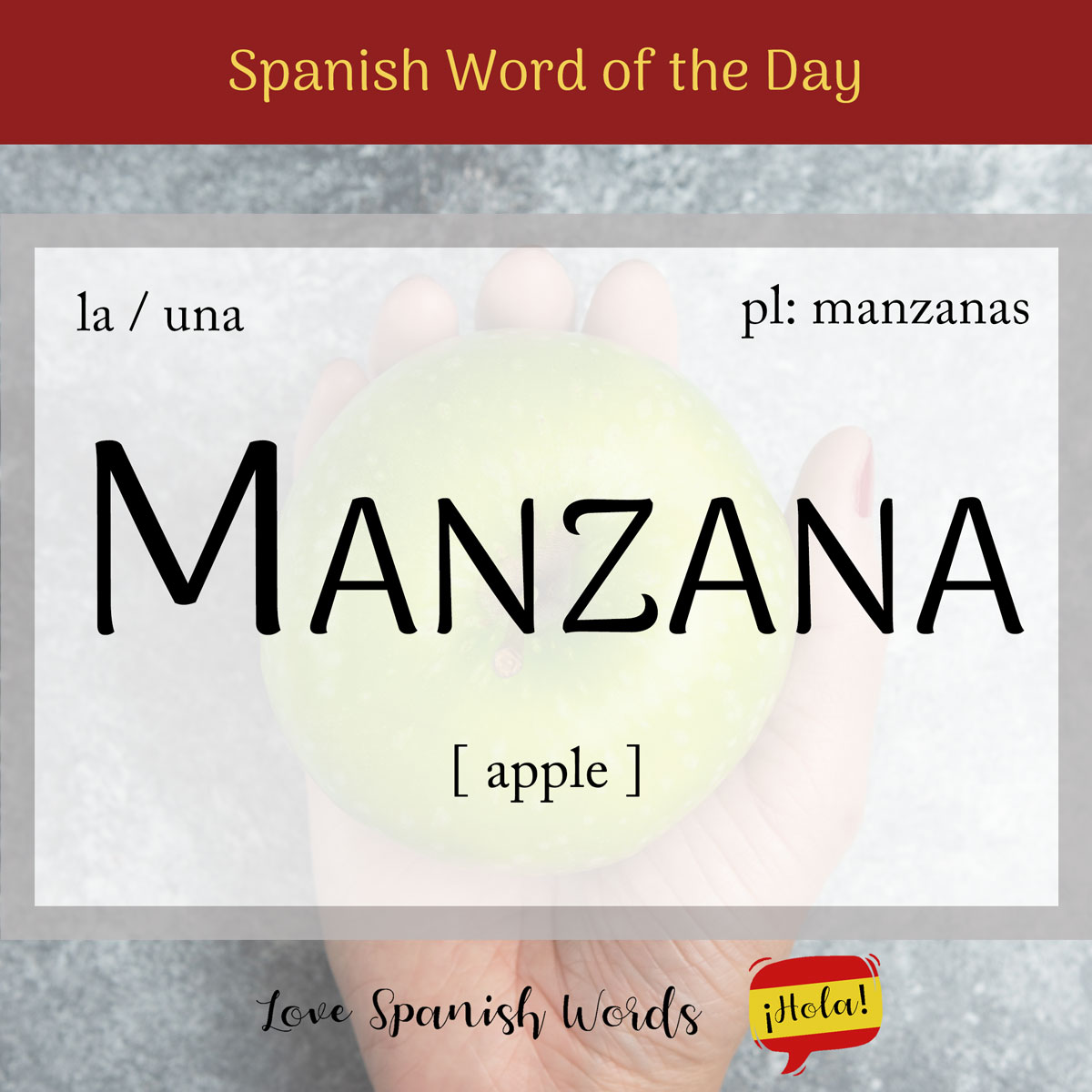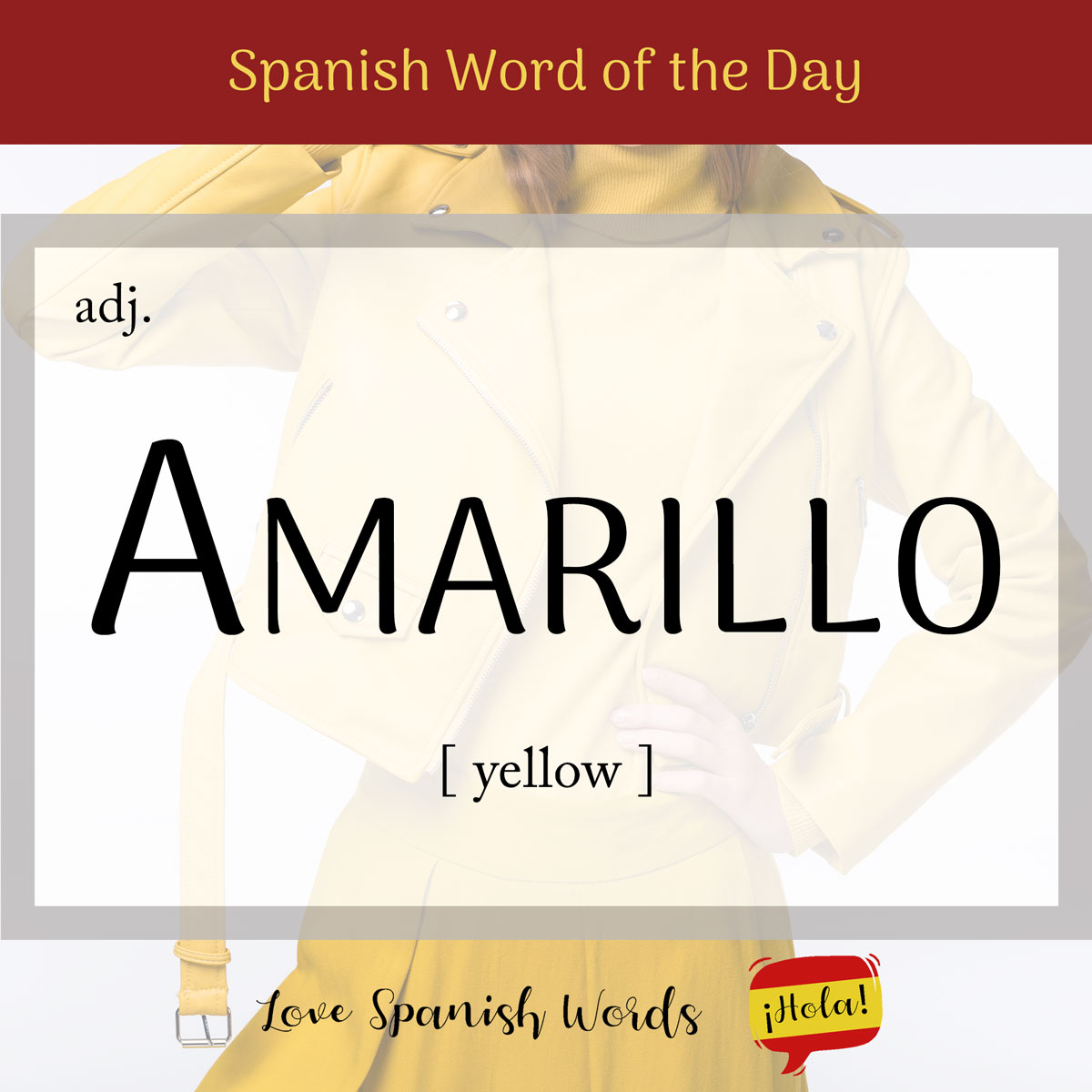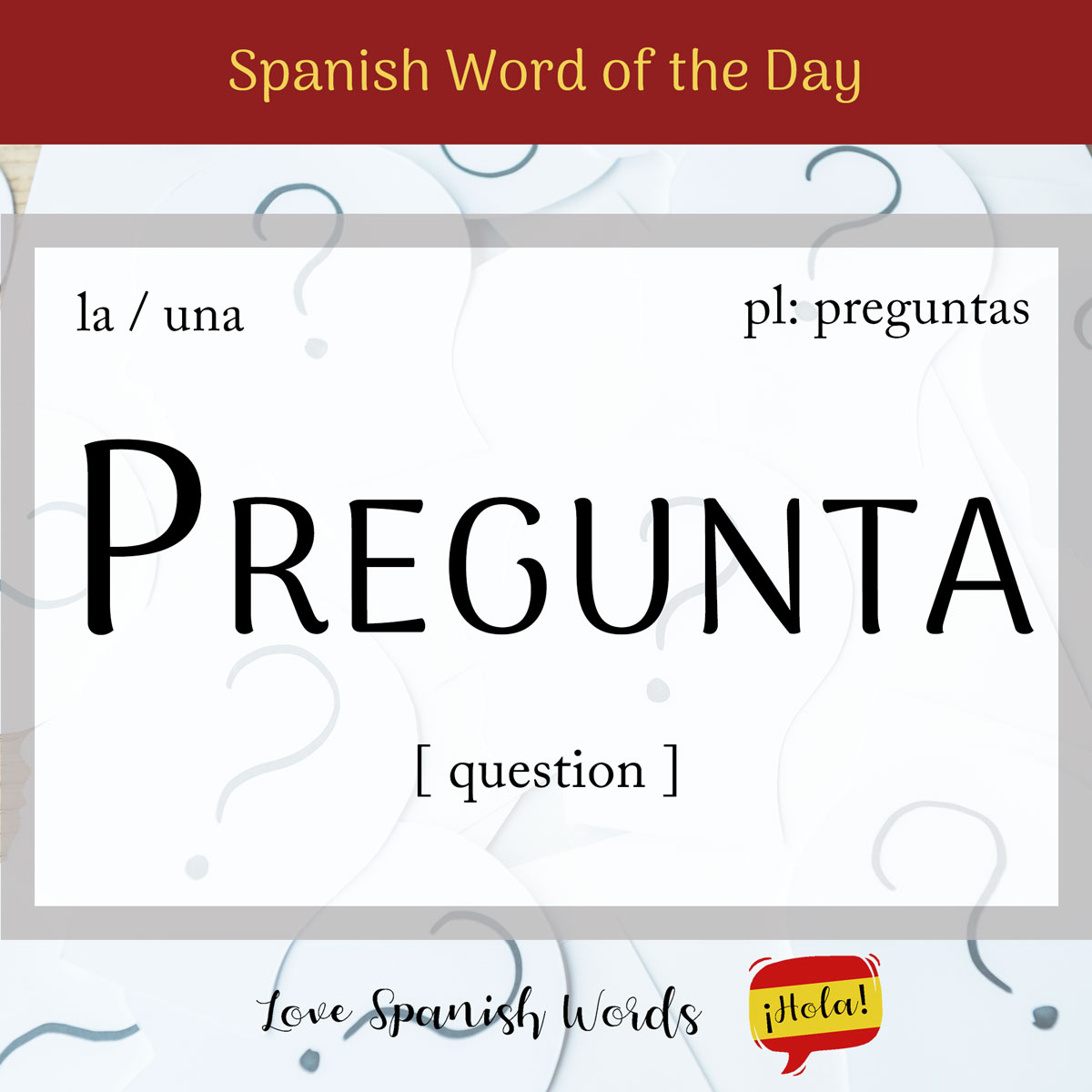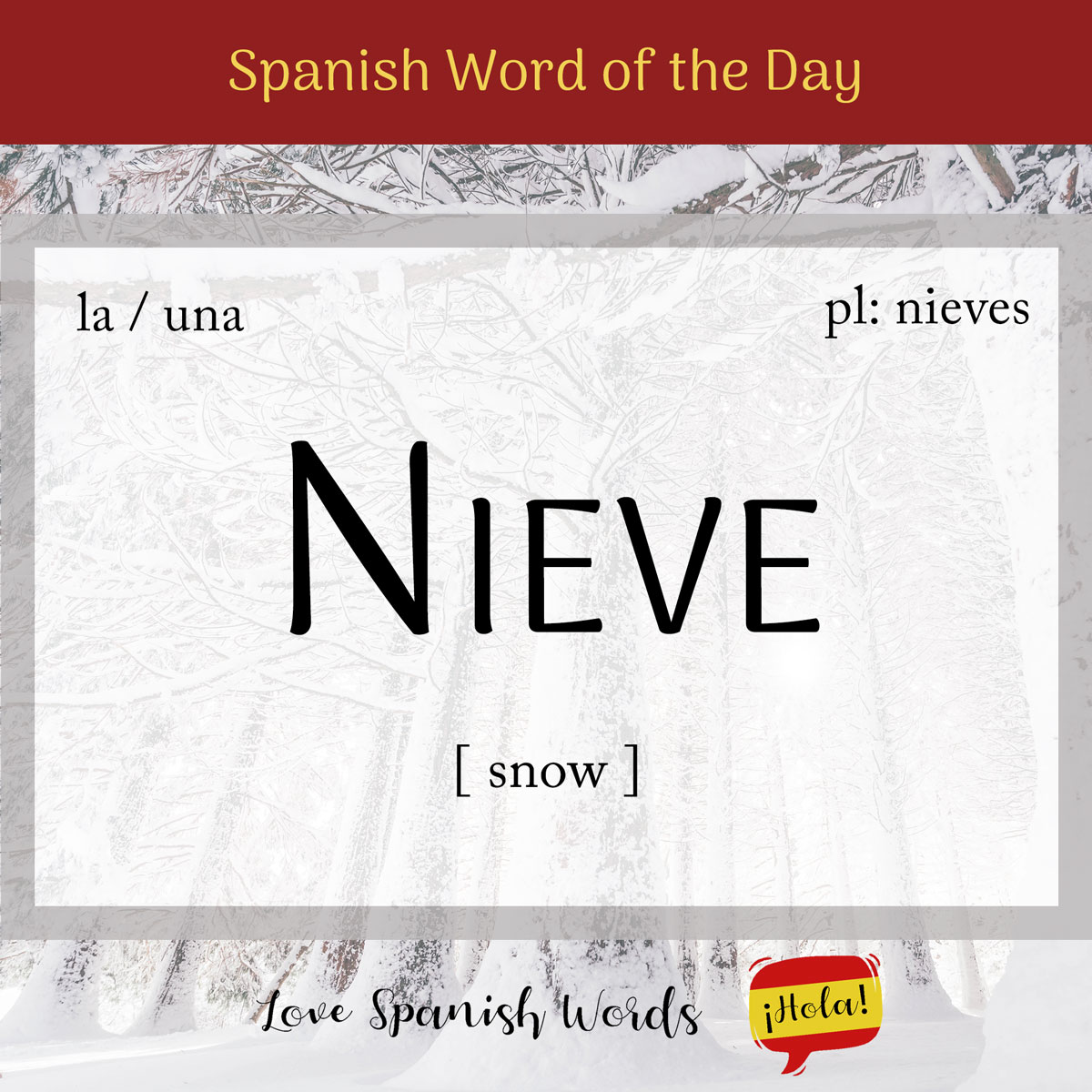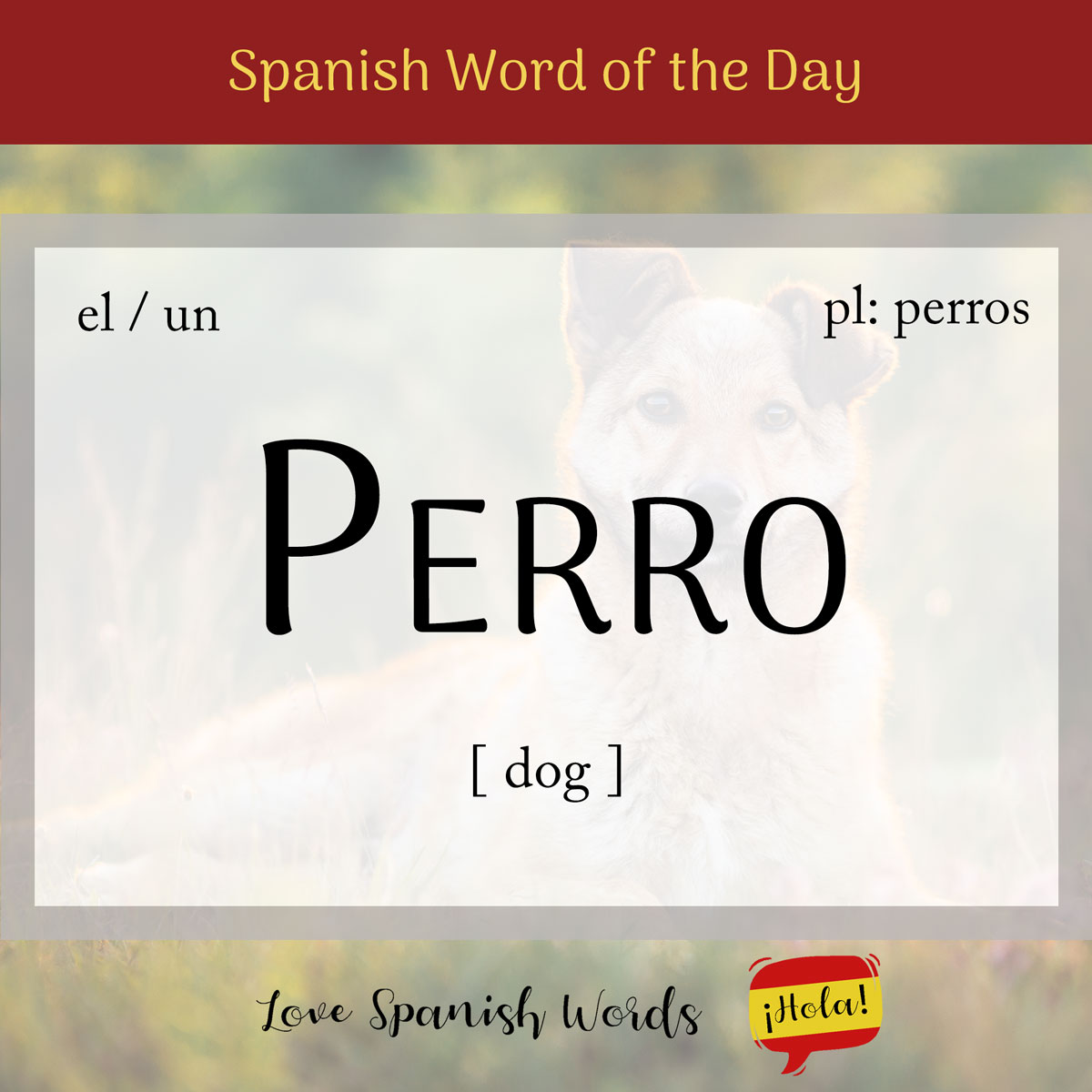Spanish Word of the Day: Manzana (apple)
The Spanish word for the fruit apple, manzana, is from an Iberian vulgar dialect word mattiana, which is a shortened form of the Vulgar Latin mālum matianum, a specific type of apple, “Apples of Matius.” Mattiana became mazana or maçana in Old Spanish. Latin American pronunciation European pronunciation Manzana is a feminine noun, so it takes the following definite …

